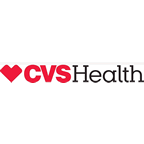Findings show that CVS/pharmacy® ReadyFill® program improves medication adherence while reducing drug waste
WOONSOCKET, R.I., 2015-11-16 — /EPR Retail News/ — New research by the CVS Health (NYSE: CVS) Research Institute is the first to show the impact of prescription refill programs on medication adherence. The study, published in the American Journal of Managed Care, found that…
